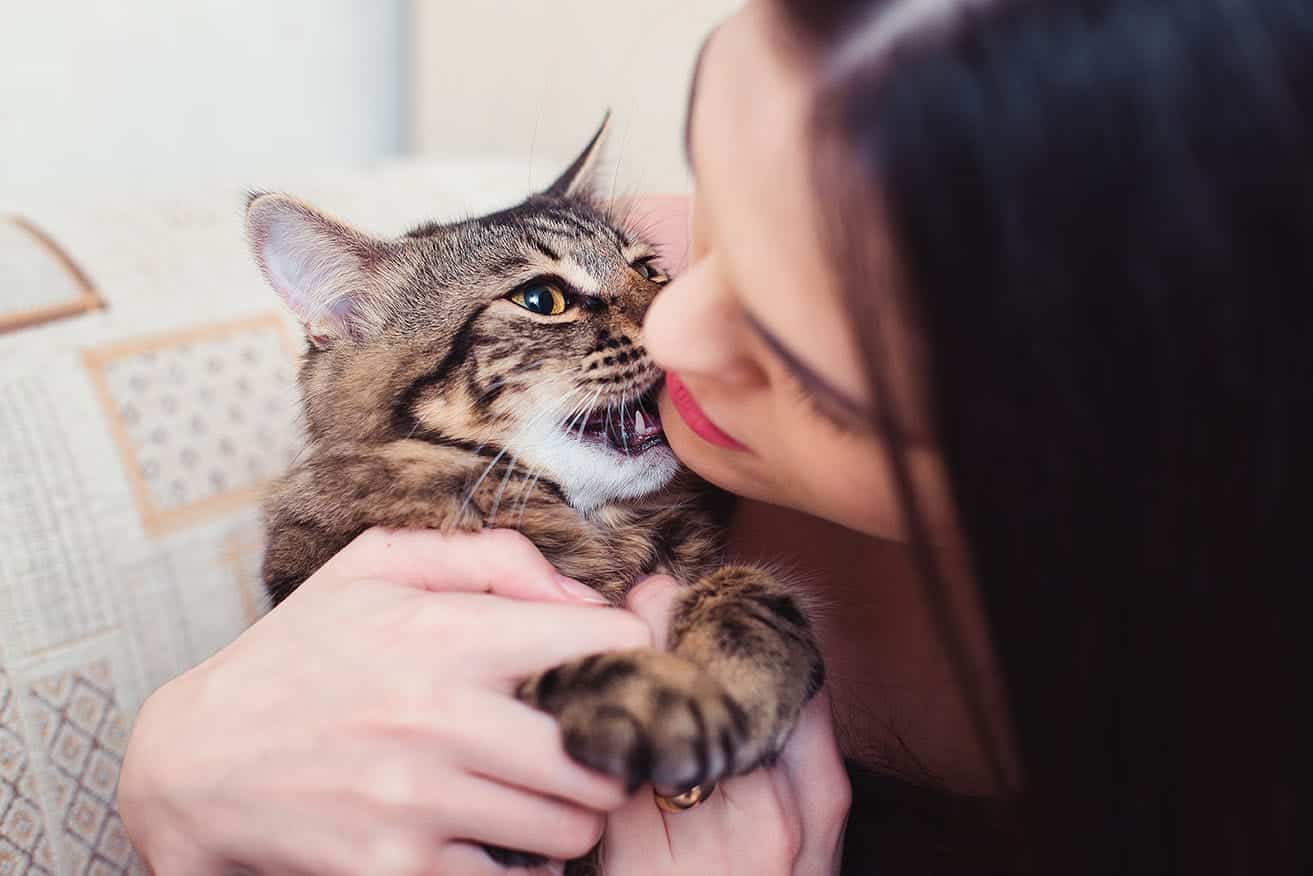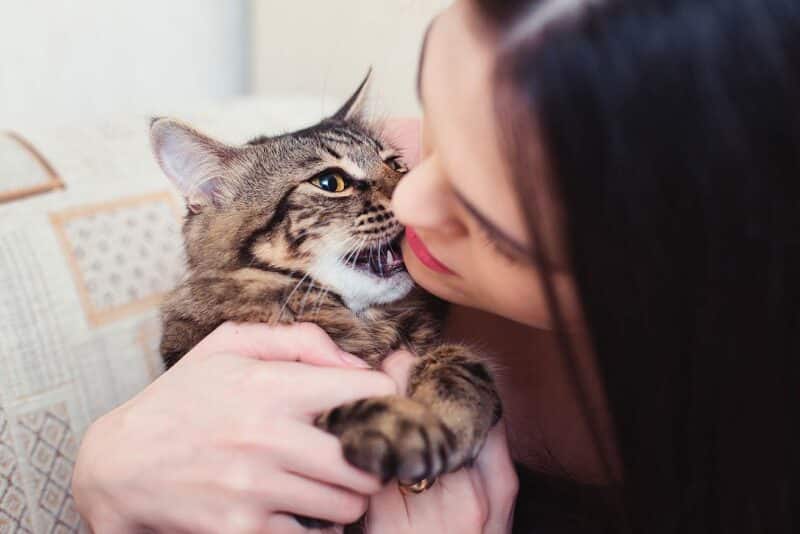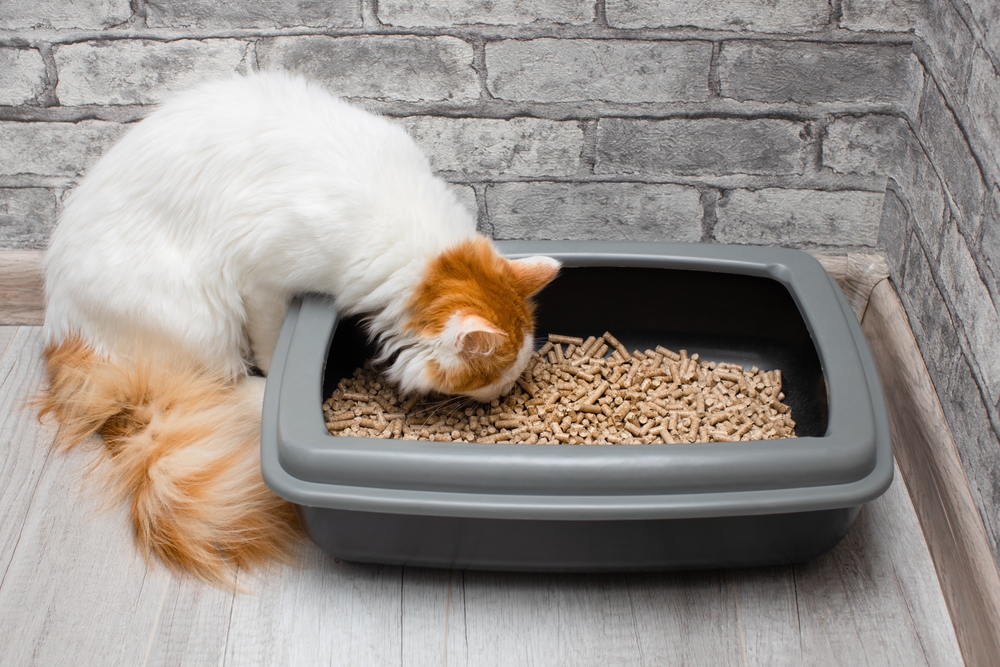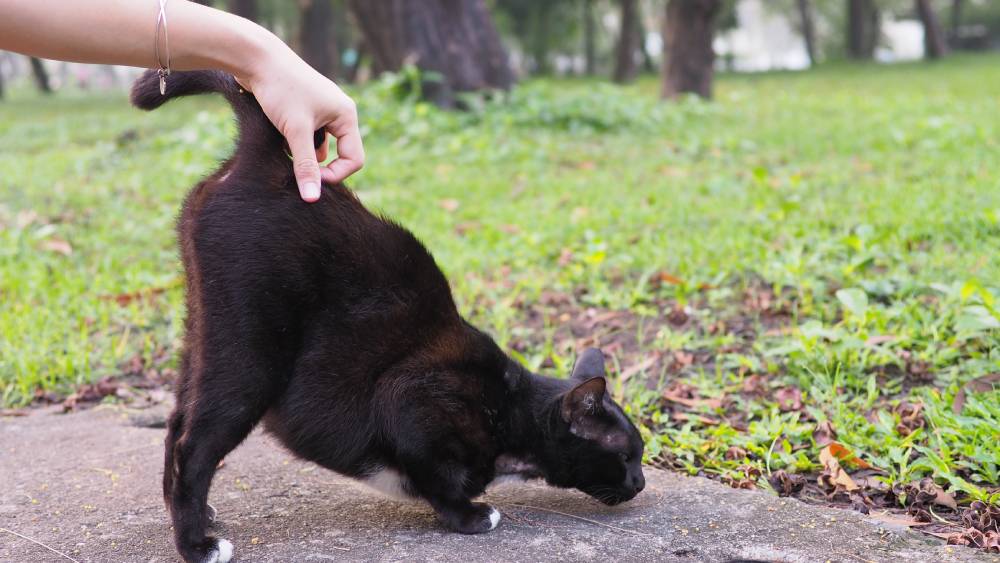Click to Skip Ahead
Cats have myriad ways in which they choose to express their emotions to humans. Some of the more common methods include meowing and purring, treading, and kneading. Your cat may also indulge in occasional chin biting.
This is rarely a sign of aggression. All the same, you may be asking yourself what it means and what can you do to stop this annoying and potentially painful interaction. Do not hesitate to consult with your vet if this is a common behavior in your kitty. Just a few questions answered may give your vet enough clues to understand why this occurs. Below, we look at the phenomenon that is feline chin biting and all its intricacies.
The 6 Reasons Your Cat Is Chin Biting
There are several reasons why a cat bites your chin. You must consider the context and what your cat was doing leading up to the bite to determine the most likely reason. It’s also worth noting that some cats may simply like the feeling of biting your chin.
1. Affection
Cats groom one another as a sign of affection, which is known as allogrooming. This can include licking, nibbling, and biting. If your cat is enjoying time with you and is an affectionate cat, the mouthing of your chin may be their way of showing you love.
Allogrooming is exhibited by several animals. Monkeys grooming and picking fleas off one another is a well-recognized form of this close contact. If you’re paying your cat a lot of attention and they nibble your chin, they could simply be repaying the compliment.
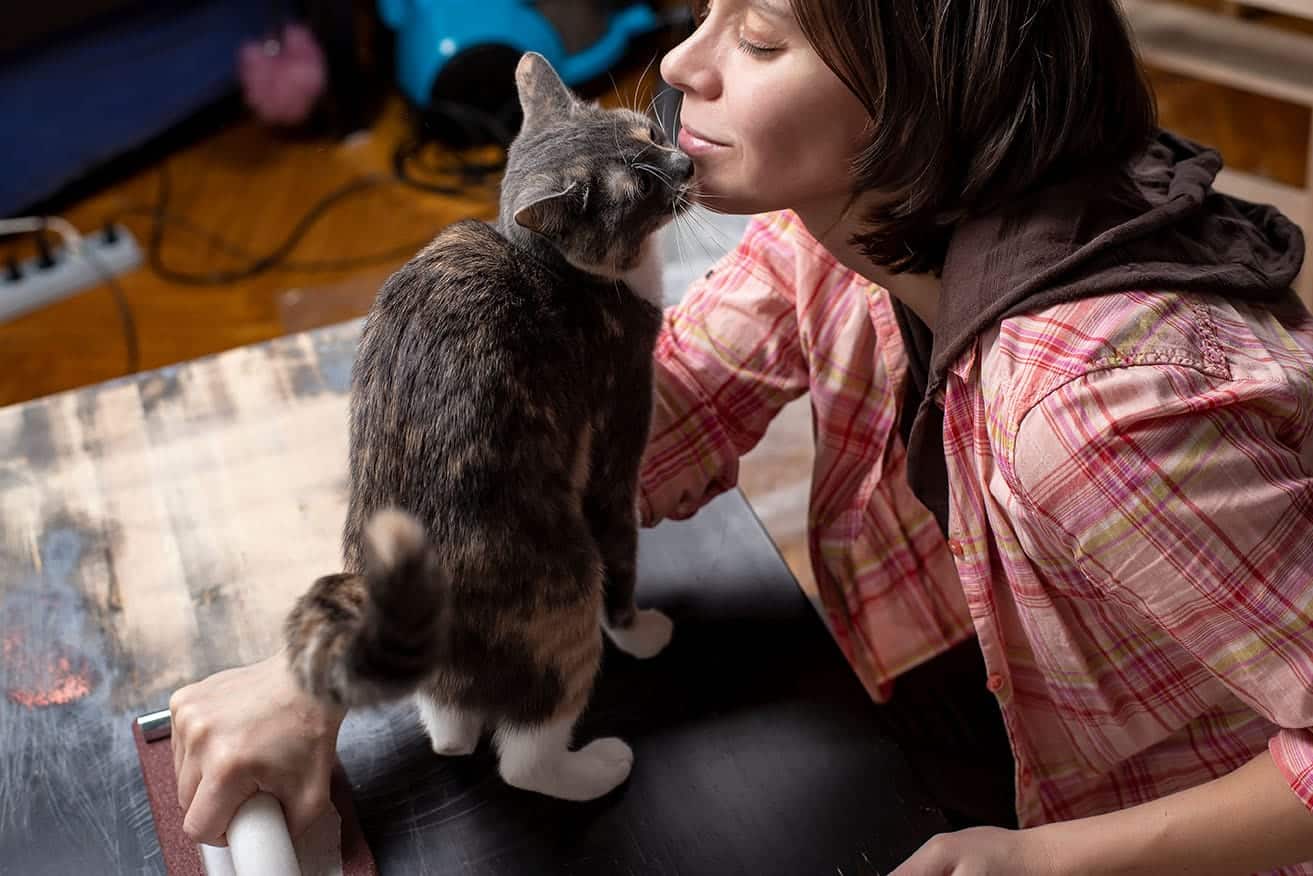
2. Scent Marking
Cats have scent glands in various places on their bodies, including their cheeks, chins, and forehead. Your kitty may be attempting to spread their scent over you to mark you as safe and part of their territory. This also helps keep you bonded with them while warning away any other cats in the area.
3. Over Stimulation
Whether you’ve been petting or playing with your cat, they may have become over-stimulated. Essentially, they’re just getting a bit carried away with the attention and how much they enjoy being stroked and petted.
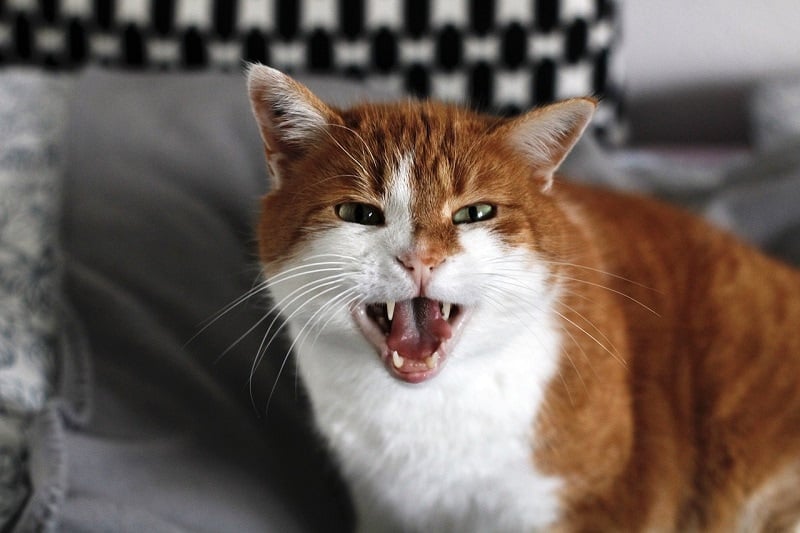
4. Petting-Induced Aggression
This behavior is seen in cats and dogs and is manifested as a form of aggression during petting. Some cats react this way if they become overstimulated. Being stroked is an intense sensation because a cat’s fur and skin can be very sensitive. They will usually give you some warning signs, and if you don’t heed the signs, they can scratch and may bite you to get you to stop.
- If their ears are facing backward, they are disturbed or upset, and you should probably stop whatever you’re doing.
- A narrowing of the eyes is another sign that they will strike because they have had enough of your petting. And then there’s the tail.
- A cat’s tail is very expressive. If the tail is thumping and flailing around, it is a good sign that they have had enough.
If your cat’s tail is going, they have narrowed eyes, or their ears are back, then you should consider stopping your petting session.
5. Stress
Finally, chin biting could be a sign of stress which, in turn, could be caused by mental or physical illness. When your cat is feeling under the weather, they will be more inclined to strike. Like a lot of humans, cats want space when they feel ill or are in pain.
6. Reaction to Pain
If your cat develops an intense dislike of being touched and it looks like they are in discomfort whenever you touch them, they might be suffering from hyperesthesia syndrome. This is basically an increased sensitivity to being touched in a certain area, commonly in the back near the base of the tail. It is more common in young cats but can develop at any time in a cat’s life. It is more common in Siamese, Burmese, Persian, and Abyssinian but can affect any breed. Affected cats should not be bred. The exact cause behind this problem is unknown, and the diagnosis requires full physical, neurological, and behavioral assessment.
This condition is rare but may lead to a host of signs, including scratching, biting, or licking the affected area. The cat may attempt to get away from you if you are stroking them and can even scratch or bite you as a means of defense. Treatment varies according to the severity, individual cat, and reasons found but may include painkillers, anti-seizure, or anti-anxiety medication.
How to Stop Your Cat From Chin Biting
Depending on the cause, there are actions that you can take to stop the biting and prevent your cat from doing it again in the future. It may require persistence and consistency, but it will be worth it in the end.
1. Never Punish Them
You shouldn’t yell or swat at your cat when they bite your chin. If they are doing it because of stress, you will only make things worse. If they are ill, it isn’t fair to punish them for it. If they do it because they are showing affection, they will get confused if they get smacked paws for sharing and showing their love.
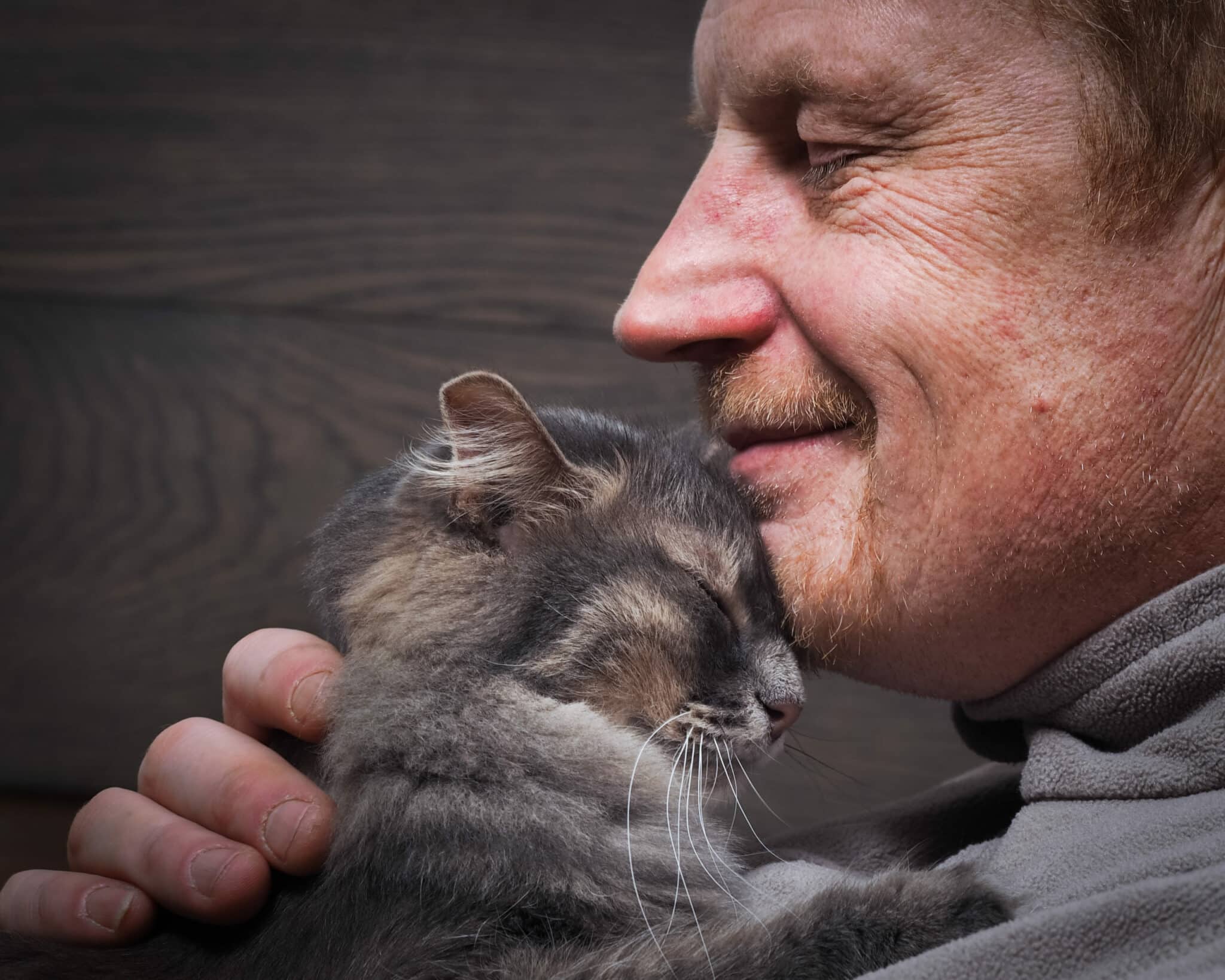
2. Give Them Space
Look for signs that your cat is asking for a little space. Few cats like to be crowded and hassled, and you might inadvertently do it with your feline friend. If you’ve approached your cat and are petting or pestering them, be prepared to move away before they strike you.
3. Provide Alternative Stimulation
If your cat gets overstimulated after stroking or playing, consider looking for alternative methods of stimulation. Get them plenty of interactive toys, offer some healthy treats or kibble, and offer catnip-laced toys. These can help your cat to vent some of their stimulation and to bring them back down again.
Lots of cats go bananas for catnip. If your cat is one of them, we recommend Hepper's durable, engaging Catnip Stick Toy! These sturdy toys come in several fun colors and feature bite-proof double bagging and 100% organic catnip fill. They're also handmade in the USA and designed to look like your cat's natural prey.
At Catster, we’ve admired Hepper for many years and decided to take a controlling ownership interest so that we could benefit from the outstanding designs of this cool cat company!
4. Look For Symptoms Of Medical Conditions
If your cat jumps or is startled when you touch them, look for signs of physical injury or other symptoms of physical illness. They could be jumpy due to a cut or sore, or because they have painful joints or even an ear infection. As well as obvious signs of physical injuries, such as cuts and swelling, look for other signs. Consider any changes in your cat’s emotional or physical wellbeing, because these could point to an illness.
Why Does My Cat Bite My Chin?
Chin biting can be irritating and cause discomfort and pain, but your cat isn’t necessarily trying to hurt or harm you. There are many reasons why your cat may have adopted the trait, and according to the context surrounding the incident, there are ways that you can stop it.
Featured Image Credit: Goncharov_Artem, Shutterstock

